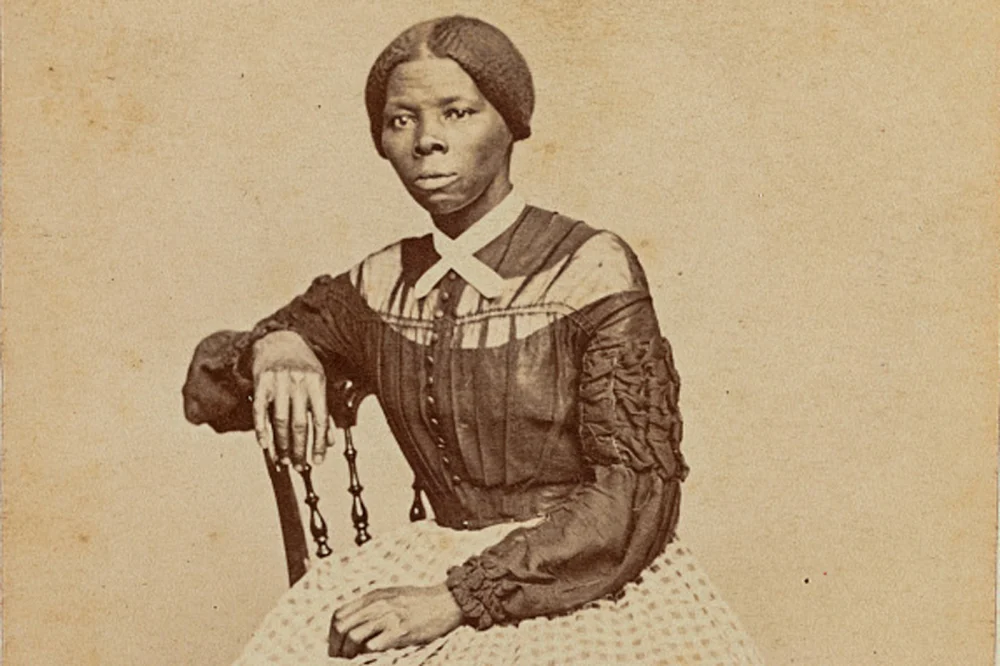Rita Daniels learned at 9 that she is the great-great-great-grandniece of famed abolitionist Harriet Tubman, who led countless enslaved Africans to freedom through the Underground Railroad. It was a moment that changed how she viewed herself and American history for the rest of her life.
So when Daniels, now 70, learned in recent days that the National Park Service drastically altered its webpage on Tubman and the Underground Railroad in February, she was devastated.
“It tore me apart when I saw the news clip flash across my phone,” said Daniels, who recently co-authored a book about Tubman’s life.
In elementary school, Daniels was assigned to write about Tubman, but books she could access at her school in Auburn, New York — where Tubman settled in 1859 after fleeing enslavement in Maryland — described her as “a thief,” Daniels recalled. “It said she stole slaves, that there was a bounty on her head, those kind of things.”
When Daniels told her mother what she found, her mother not only told her it was untrue, she told Daniels that Tubman was her ancestor.
That began a life in which Daniels leaned on Tubman’s legacy for strength while also working to preserve history as an author and the founder of the Harriet Tubman Learning Center.
The page had been changed in February, The Washington Post reported, swapping out a large image of Tubman for one of five postage stamps celebrating “Black/white cooperation.” The description of the Underground Railroad was changed from “the resistance to enslavement through escape and flight” to one that downplays the role of slavery, instead saying it was an expression of the “American civil rights movement” that bridged “the divides of race.”
“I was just basically shocked and hurt at the same time,” Daniels said. “Most of my adult life, I pretty much wanted to make sure that people know that her story is a critical part of Black history, which is American history.”
Daniels said that as a child, it felt both shocking and empowering to learn she came from the bloodline of one of the most significant figures in American history.
“At that age, I didn’t fully understand the race war in the country or why they would describe her that way in books,” she said. “But I knew having her as a relative was special.”
She said Tubman’s tenacity has been a significant influence in her life. When she was tormented for years by a stalker, Daniels sought strength from her ancestor.
After years of persistent harassment that began when Daniels was 17, the man broke into her home and stabbed her repeatedly, including on her face, sending her for an extended hospital stay.
“I keep my aunt in my mindset when I fall or when I get into a mood of not wanting to move on or keep going,” Daniels said. “Her words were, ‘Keep going. Never give up.’ And that’s what kept me going. Even when I had been beaten up, I referred to her words. So I kept going, no matter what. She’s in my bloodlines and her words are in my head always.”
After the NPS website was changed to remove Tubman’s words and a short account of her work shuttling dozens of enslaved people from bondage in the South to freedom in northern states, plus mention of the racist laws that forced the existence of the Underground Railroad, public outcry came fast and loud. On Monday, the NPS said in a statement that the page had been deleted “without approval” from the agency’s top brass and the original version was “immediately restored.”
“My question is: Why do they want to erase our Black history?” Daniels asked. “Why are we such a threat to certain Americans? They want to remove or ignore very reputable Americans, Black Americans? Why? The answer is racism.”
The change was one of many on government websites that had been updated or erased as part of the Trump administration’s sweeping effort to delete what it considers references to diversity, equity and inclusion, or DEI. Jackie Robinson, who broke the color barrier in baseball, was also removed from the Army website and later restored, as was Colin Powell and Pearl Harbor hero Doris Miller.
The backlash over attempts to gloss over Tubman’s history and that of the Underground Railroad only underscores how important it is to preserve it, Daniels said.
“This is the kind of impact Harriett Tubman had on many people, not just me,” she said.
“And they want to erase that? No. She’s too important to our family and to American history to just be pushed aside. They can’t call what she’s done DEI.”



